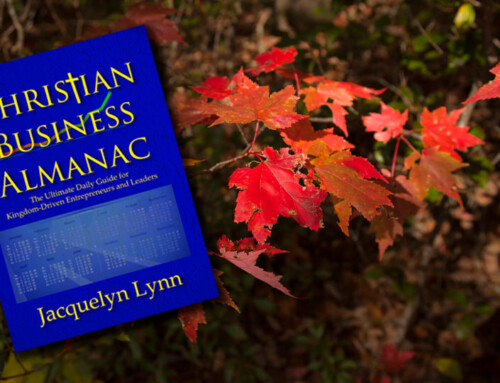Should you write a book about your business? This guest post by Savannah Cordova, a writer with Reedsy, will help you decide.
One of the most oft-given pieces of advice for business owners is that they should write a book about their business. Such a book can serve many purposes: establishing or reinforcing one’s expertise in a given market, increasing visibility with one’s target audience(s), and bringing in new customers, to name a few.
However, one piece of advice people don’t hear enough is that you absolutely should not write a business book until you’re ready.
Indeed, in today’s hustle-inclined culture, the notion of slowing down to think about a new venture can seem unglamorous at best, counterproductive at worst. But take it from me, as someone who’s seen many a self-published business book struggle to sell: if you’re going to put in the time and effort to write a book, you want it to have the best possible chance of success.
To that end, here are a few key questions to determine whether you’re ready to write a business book… and moreover, whether you’re ready to sell it effectively.
1. Do you have sufficient experience?
The first and most crucial thing to consider is the question of business experience — as in, do you have enough? It might sound obvious, but this is probably the number-one reason why people fail to finish writing nonfiction: they haven’t done enough research, don’t have sufficient experience, or aren’t worldly enough to synthesize what they know in a meaningful way.
In the context of business books, experience is arguably even more important than research; after all, if people just wanted facts, they could turn to papers or articles. Readers are drawn to business books that present relevant data and make interesting connections between that data and the author’s life — or, in the case of business books about other companies, between that data and the subject at hand. (For the purposes of this post, we will generally presume that you are writing a business book about your own life and work.)
And while any diligent person can do the necessary research, it takes at least a few years of experience to be able to draw those parallels. This is why knockout business bestsellers tend to be books written by experts in their fields; consider titles like Lean In by Sheryl Sandberg, Shoe Dog by Phil Knight, and Steve Jobs by Walter Isaacson (not an autobiography, but Isaacson himself was a seasoned CEO and conducted dozens of interviews with Jobs to write the book). All these authors had years — if not decades — of experience before they chose to pursue business books, and that deep knowledge comes across clearly in their writing.
Experience not only bolsters your authority in a business book, but also makes for a more compelling narrative. Take one of the most celebrated books in the business genre, Lee Iacocca’s autobiography Iacocca. With nearly 40 years of experience under his belt at the time of writing, Iacocca weaves a fascinating tale of his time at Ford Motors, his feud with Henry Ford II, and his ultimate firing and comeback by saving Chrysler from the brink of bankruptcy.
Even those who know nothing about the auto industry (like myself) have been drawn in time and time again by Iacocca’s story; your own experience-based business book should do the same. I’m not saying you need to wait until near-retirement to do it — or that it will still be renowned 40 years after the initial publication — but you do need something substantive to say if you want readers to listen.
2. Do you have a unique perspective?
Speaking of having something to say, your experience should naturally lead to some kind of central thesis for your book, which itself might be broken down into several key elements. This is what we’ll call your business “perspective”: your views on your own experience as well as the business world around you, and the lessons you wish to impart as a result.
Just by virtue of so many business books having been published in the last half-century, it’s tough to find a perspective that’s 100% original. What you can do, though, is use your experience and personal philosophy to build a perspective that is as unique as possible.
Here are a few approaches you might try (or combine!) to formulate that perspective:
- Use your industry as an extended metaphor. How might the specific elements of your work be used symbolically to convey what you’ve learned? For example, if you were in the auto industry yourself, you might use the mechanical components of a car to discuss how a business needs a strong “steering wheel” to guide it, how forgetting to “put oil in the car” can have disastrous effects, etc. It might sound contrived and even a little corny, but this can be a great entry point into an unusual perspective for your business book!
- Employ turning points as key beats. If you wish to write your book chronologically — with the narrative following your career from start to finish (or up to the present day) — then it makes sense to structure it around your “turning points.” When did you decide to pursue this business; when did it really take off; when did you have your first major setback, and how did you recover? Explain what you learned at each turning point and how that lesson evolved from (or even negated) what you previously understood. As an added bonus, this is an easy structure for readers to follow.
- Draw comparisons to other industries. One more way to construct a unique perspective for your business book is to compare your business experience to another industry (or industries) entirely — and if you have any experience in that second field, all the better! For example, Anna Wiener kicks off Uncanny Valley by comparing the tech industry to the publishing industry, musing on how they were destined to converge in various ways. Wiener’s experience in publishing before working in tech crops up often throughout the book, providing an interesting — and definitely unique — foundation of knowledge for a tech writer, and resulting in some striking takeaways.
Now, if you’ve tried brainstorming using these techniques and you still can’t come up with anything that feels particularly fresh, you may need to ruminate a little more before you write a business book. However, if you feel confident about your level of experience and your perspective, there’s only one question left to ask…
3. Do you have an audience?
Perhaps the most pragmatic thing to consider when writing a business book is the question of who is going to read it? For many business writers, this would actually be their first question — but in terms of your own readiness to write a business book, it’s arguably less important. True, it may be helpful to imagine your target audience while writing so you can tailor your book to their tastes; however, the real heart and soul of your book are what you bring to the table.
In other words, you can’t write a great business book without answering yes to those first two questions… but you also can’t really sell it without answering yes to this one. The good news is that there are a number of ways to identify and/or establish your book’s audience.
First off, think about how and where you currently interact with your customers. Whether it’s a brick-and-mortar store or a thriving Instagram account, you can (and should!) leverage your existing platform(s) to gain readers. You can do this in many ways — everything from social media posts and online ad campaigns to simply telling people about your upcoming book. You should be able to gauge interest with relative ease, and this will give you a sense of whether to publish your business book now or wait until you’ve built more of an audience.
Furthermore, keep in mind that your primary target audience may not be your customers! If your book is fairly personal — more of a memoir than a how-to — then indeed, friends, family, and customers are a safe bet. But if your business book is a serious, take-no-prisoners account of hustling your way to the top, with cutting-edge advice and very few personal anecdotes, then your target audience will be quite different.
Regardless of your current customers and how well they align with your target audience, remember (again) that they don’t actually determine whether you’re allowed to write a book — only how easy it will be to launch it. So while this last consideration is a bit more optional, I thought it was worth mentioning all the same.
At the end of the day, only you can know whether you are truly ready to write a business book. I hope these questions and examples have given you something to think about — and if you do decide to write your very own business book, I hope it is an Iacocca-level success!
Savannah Cordova is a writer with Reedsy, a marketplace that connects authors with publishing resources and professionals. In her spare time, Savannah enjoys reading both fiction and nonfiction, writing stories and essays, and sampling small businesses around London.
- Are You Ready to Write a Business Book? Here's How to Tell - May 8, 2024
- Discovering the Counter-Cultural Jesus - April 12, 2024
- Google Chrome Tip: Navigating Your Tabs - March 15, 2024







Leave A Comment